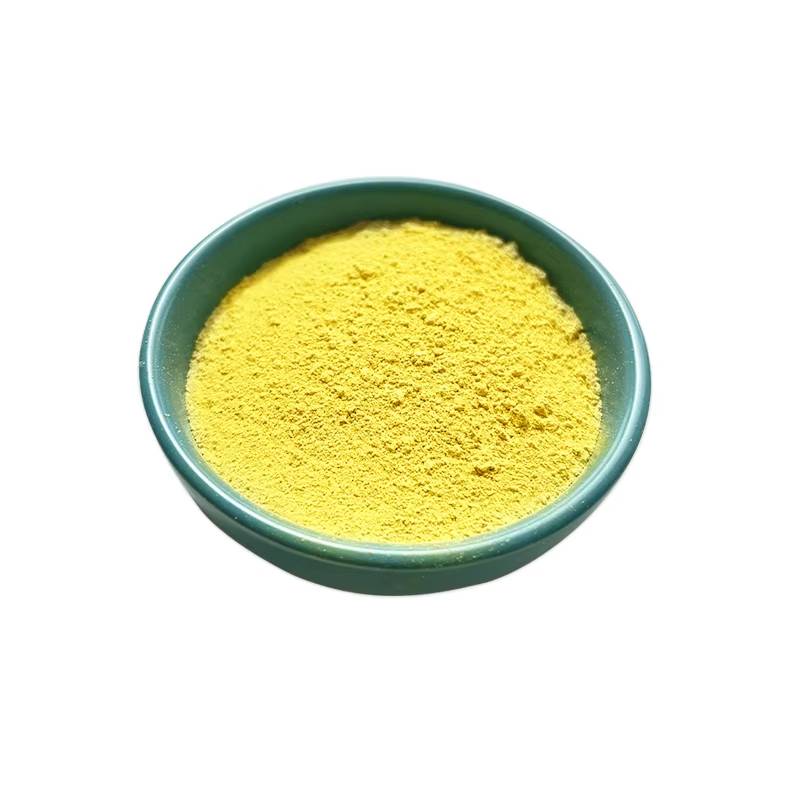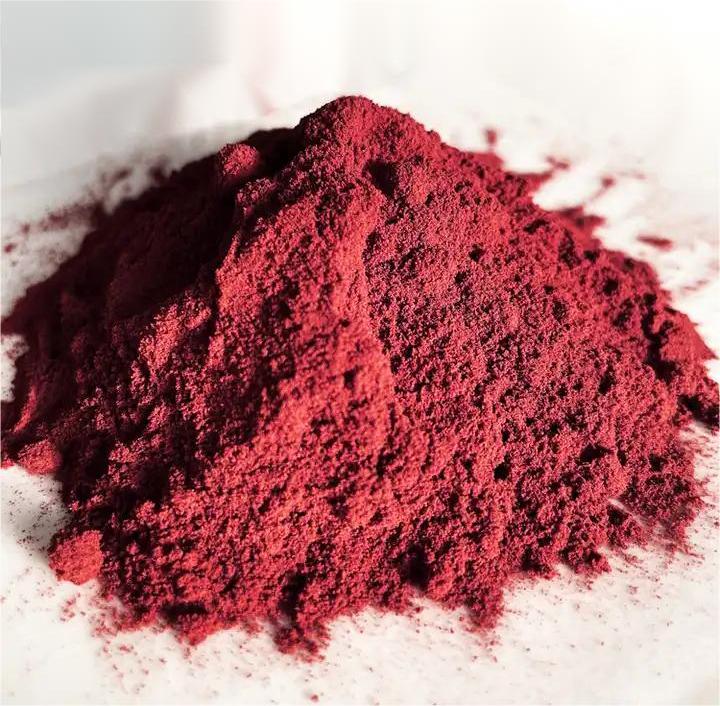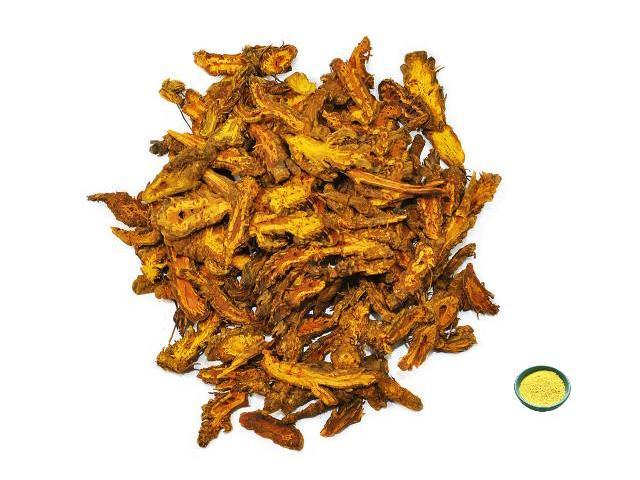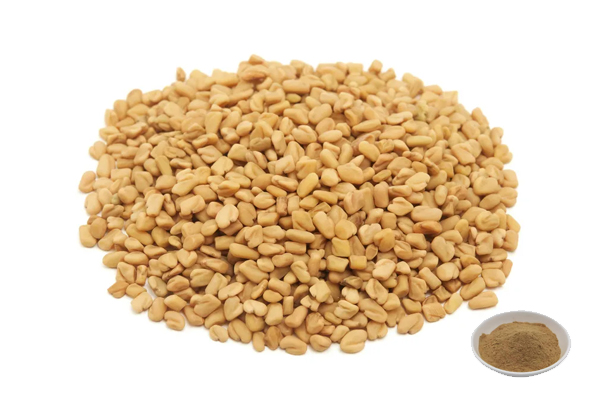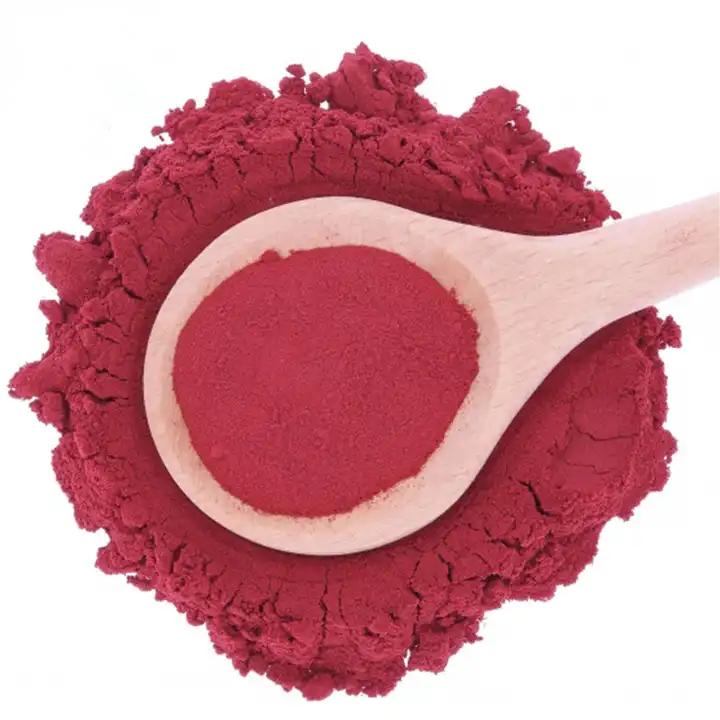Berbérine HCL poudre 97% HPLC
Nom Latin :Coptis chinensis Franch
Source:Coptis chinensis France racine
Ingrédients actifs :Berberine HCL
Spécification :97%
Méthode d’essai :HPLC
Apparence: poudre Fine jaune
Résidu de Pesticide: conforme à la norme (ce) No 396/2005
- Description Description
- Fiche technique
- Certificat de formation
-
Qu’est-ce que la poudre de Berberin HCL?
Berberine hydrochloride is an isoquinoline alkaloid. On l’appelle la berbérine. On le trouve dans de nombreuses plantes de 4 familles et 10 genres, dont les Berberidaceae. La berbérine peut précipiter des cristaux jaunes ressemblant à des aiguilles de l’éther. Point de fusion 145℃. Soluble dans l’eau, insoluble dans le benzène, l’éther et le chloroforme. Le chlorhydrate de berbérine, également connu sous le nom de berbérine, est un alcaloïde important extrait de berbéris, de l’écorce de Phellodendron, et d’autres plantes, appartenant aux médicaments chimiques purifiés de la médecine traditionnelle chinoise, utilisés pour les infections gastro-intestinales causées par des bactéries pathogènes sensibles, telles que la gastro-entérite.
Green Spring Technology fournit de la poudre de berbérine HCL, qui est extraite de la racine de Coptis chinensis France. Il est élevé en pureté, et faible en impuretés, métaux lourds, et micro-organismes selon la pharmacopée européenne.
Fondée en 2000, printemps vert Technology s’engage à fournir à ses clients des extraits de plantes naturels, sûrs et biologiques. Les produits sont fabriqués selon les normes internationales les plus élevées de l’industrie, en conformité avec ue EC396, ue 2023/915, et les normes les plus élevées de résidus de solvants. Il détient 8 certifications et 7 brevets, et ses produits sont vendus dans plus de 62 pays à travers le monde. Printemps vert A obtenu Halal, casher, COSMOS, BRC, IFS, FDA, ISO9001, ISO22000 et de nombreux autres certificats.
Spécification:
Nom du produit
Berbérine HCL
Nom Latin
Coptis chinensis Franch.
Source:
Coptis chinensis Franch racine
Ingrédients actifs
Berbérine HCL
spécification
97%
Méthode d’essai
HPLC/HPLC
apparence
Poudre jaune
Résidus de pesticides
Conforme à la norme (ce) n ° 396/2005
Règlement:
Il est conforme à la réglementation de l’ue.
Vous cherchez un devis?Benefits:
Antibacterial
Berberine Hydrochloride is usually taken orally for the treatment of mild intestinal infections. Berberine Hydrochloride chloride is effective in inhibiting Staphylococcus aureus and Enterococcus faecalis. Berberine hydrochloride also has a strong inhibitory effect on Shigella dysenteriae and Salmonella dysenteriae, and can be used in the treatment of bacterial dysentery. Helicobacter pylori (HP) infection is the main cause of peptic ulcers.
Berberine hydrochloride has been found to inhibit HP proliferation while reducing the toxic effects of HP infection on cells. It has also been shown that it kills bacteria by inhibiting HP growth and respiration, causing the oxidative decarboxylation of glucose and its metabolic intermediate pyruvate to be inhibited, reducing the number of bacterial hairs, and decreasing the ability of bacteria to adhere to cells.
Regulation of Lipid Metabolism
Berberine can upregulate the expression of lipolysis-related genes and inhibit the expression of liposynthesis-related genes by activating the AMP-dependent protein kinase (AMPK) pathway, thus accelerating lipolysis and metabolism and reducing the accumulation of body fat.
Beneficial for Ulcerative Colitis
Ulcerative colitis (UC) is a recurrent chronic non-specific inflammatory bowel disease of unknown pathogenesis. Berberine hydrochloride has been shown to increase the number of beneficial intestinal bacteria, such as Blautia and allobaculum, that produce short-chain fatty acids (SCFA), which regulate intestinal pH, are anti-inflammatory, and modulate metabolism and immunity.
Some studies have also indicated that berberine hydrochloride itself has strong anti-inflammatory and immunomodulatory effects, and can reduce intestinal mucosal damage, such as that caused by NSAIDs and chronic stress, and also reduce the expression of inflammatory transmitters in the body. Therefore, berberine hydrochloride can regulate the balance of bacterial flora and reduce mucosal damage, thus achieving the effect of UC treatment.
Antihypertensive
Berberine Hydrochloride Tablets can also increase the production of nitric oxide by up-regulating the expression of nitric oxide synthase mRNA, thus achieving the effect of vasodilatation and lowering blood pressure. This effect is important for the treatment of hypertension patients.
Pain Relief
The ingredients in Berberine Hydrochloride Tablets can inhibit the transmission of pain signals, thus providing pain relief. For symptoms such as mild headaches and toothaches, berberine hydrochloride tablets can provide some relief.
Helps Cardiovascular
Berberine is antiarrhythmic by reducing the incidence of premature ventricular contractions and inhibiting the occurrence of ventricular tachycardia. Secondly, dyslipidaemia is a major risk factor for cardiovascular disease, characterised by elevated levels of total cholesterol, triglycerides and low-density lipoprotein cholesterol (LDL), as well as decreased levels of high-density lipoprotein (HDL), and berberine can be extremely powerful in maintaining the stability of these indicators. Chronic hyperlipidemia is an important cause of atherosclerotic plaque formation. Berberine hydrochloride has been reported to affect LDL receptors in hepatocytes to reduce human serum cholesterol levels in hepatocytes.
Applications:
In Pharmaceutical:
Berberine Hydrochloride Powder as a natural raw material is mainly used for the treatment of gastroenteritis, bacillary dysentery, and other intestinal infectious diseases, with a broad antimicrobial spectrum, effective against a wide range of intestinal infection bacteria. Besides its beneficial effects on intestinal infections, berberine is also used to treat diseases such as ocular conjunctivitis and purulent otitis media. In addition, it is used in the treatment of some cardiovascular diseases, such as anti-arrhythmia.
-
Get Your Free COA
-
Télécharger le document
Cosmos Green Spring Technology
Télécharger le documentHalal Green Spring Technology
Télécharger le documentKosher Green Spring Technology


 Anglais
Anglais français
français espagnol
espagnol russe
russe coréen
coréen japonais
japonais



